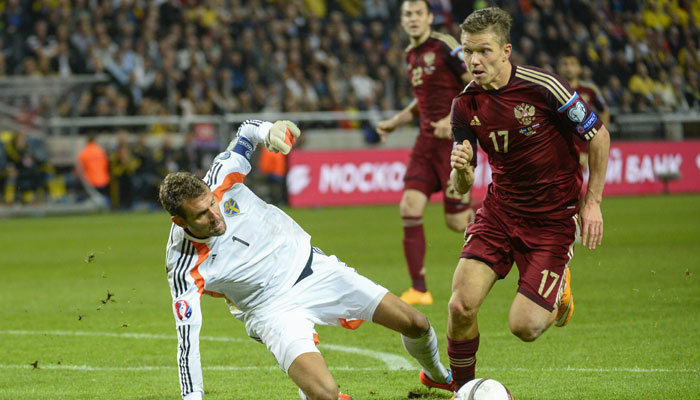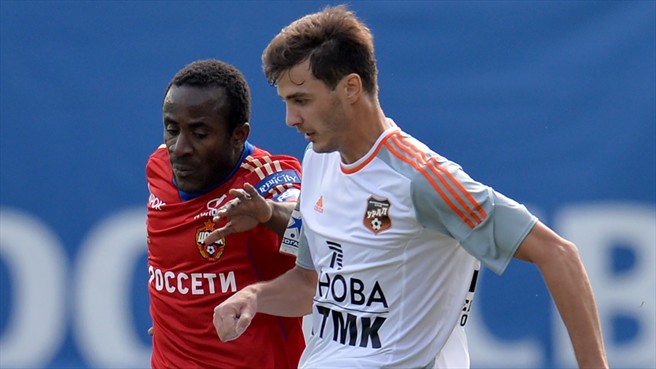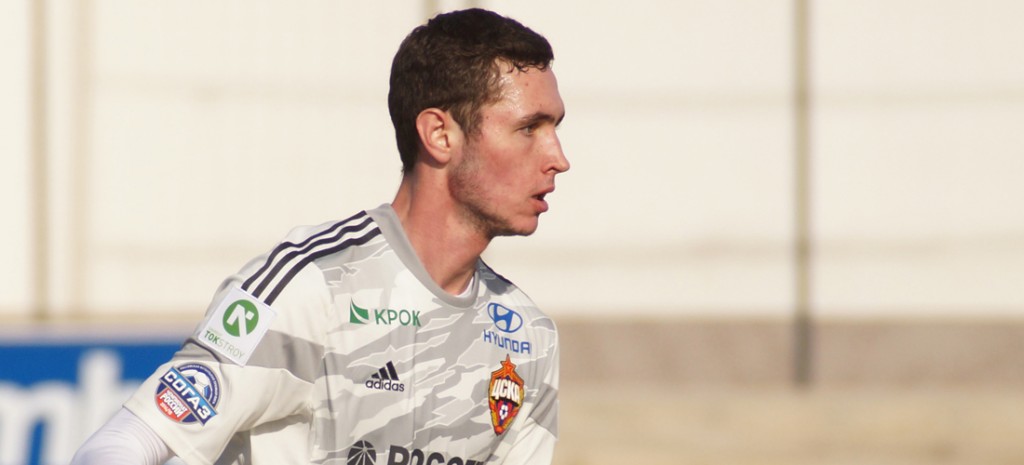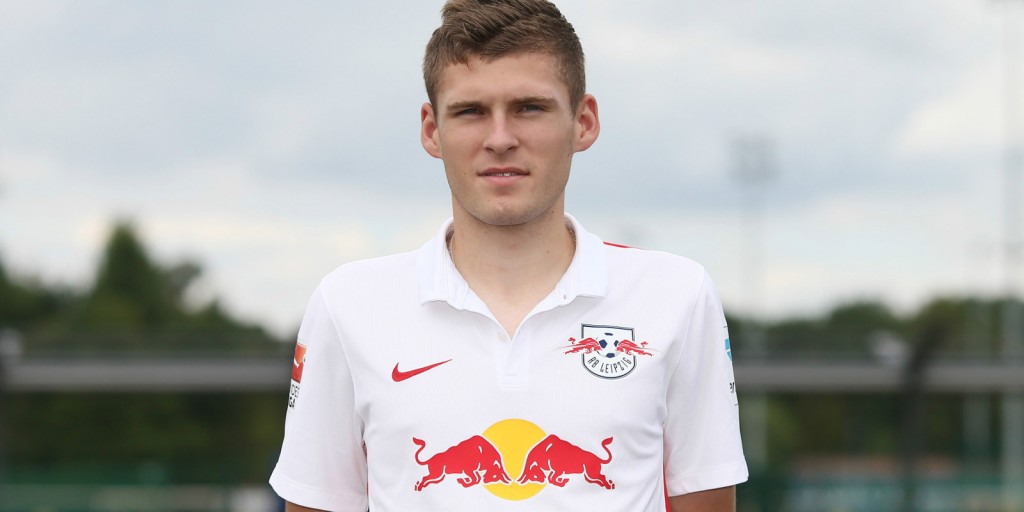By Manuel Veth –
Leonid Slutsky will face his first major task as the new head coach of Russia (or Sbornaya) on Saturday against Sweden. With six out of ten matches completed, Russia is placed third, eight points behind first ranked Austria, and four points behind second ranked Sweden. With only the first two teams guaranteed a qualification spot for next year’s European Championships in France, the Sbornaya will be hard pressed to win the match against Sweden on Saturday and to close the gap to just one point.
Slutsky replaced the Italian coach Fabio Capello in early August—Capello was fired amidst criticism that the Sbornaya had stagnated under his tutelage, but in truth Capello’s reign as head coach was marred by chaos that ensued when the Russian Football Union (RFU) failed to pay his wages and also did not provide him with the necessary infrastructure to develop the country’s football to the next step. For now Slutsky will be on double duty, as he is expected to coach Russia whilst remaining the head coach at CSKA Moscow.
There was a strong desire in Russia that the new head coach of the Sbornaya be a Russian speaker, and as Saul Pope pointed out rightly in his article that was published on Futbolgrad on August 14: “a Russian-speaking manager familiar with the league was needed, and one in his prime who happens to manage Russia’s most skilful player was available.” But after less than a month Slutsky faces the almost impossible task of turning Russia’s European Championship qualification campaign around for the Sbornaya.
Slutsky – Where is the New Blood?
Slutsky will be forced to operate with a squad that looks almost identical to the team used by Fabio Capello. The only potential debutants for Russia are the 25-year-old midfielder Aleksandr Erokhin from Ural Yekaterinburg and the 34-year-old full-back Oleg Kuzmin from Rubin Kazan. Slutsky has also recalled the 33-year-old CSKA Moscow defender Aleksei Berezutski, and Dinamo Moscow’s 31-year-old holding midfielder Igor Denisov.
Of the four changes only Erokhin is under 30-years of age, and the 193cm tall offensive midfielder can also be used as a striker. Erokhin is having a standout season so far with Ural as he has scored four goals in the first seven games this season, and averaged a Whoscored.com score of 7.35. But, apart from Erokhin, the reactivation of Berezutski and Denisov suggests that Slutsky wants to address Russia’s sporting problems by bringing experienced players to the squad. The fact that Slutsky has called up Kuzmin—who besides his age also suffers from an average Whoscored.com score of only 6.84—shows that Russia currently lacks young alternatives in crucial positions.
Slutsky’s strategy is understandable as older more experienced players are more likely to guarantee him results in the short run. Furthermore, Slutsky, speaking to championat.com stated that he felt that there was too little time to prepare the team “I am concerned that we have too short a period of time in order to learn. For my part, the main task is to choose the optimal variant of the starting line-up, using the current list of players.” Hence, with only a few days to prepare his team for the upcoming fixtures against Sweden, and Lichtenstein, Slutsky will be forced to use players familiar with one another, and the short amount of coaching time allotted also means that there is little time to introduce younger newcomers to the squad.
Building for Russia 2018
Slutsky is expected, however, to not only qualify for the 2016 European Championships in France, but at the same time is also supposed to built a team that can be competitive at the 2018 World Cup, which will be hosted by Russia. There is some hope that the current crop of young players that triumphed two years ago in Slovakia at the Under-17 European Championships, and came in second at this year’s U-19 European Championships in Greece where they were beaten 2-0 by a technically gifted Spanish side will form the backbone of an exciting young national team. Russian authorities hope that the Sbornaya will not only be competitive at the World Cup in 2018, but that the country will actually field a team that could challenge for the title, but even with a young exciting young crop of players emerging in Russia, sportsbettingdime.com is predicting that Russia’s odds of taking the title are only 20/1.
As Andrew Flint pointed out in his Futbolgrad article on July 21 the picture of youth development across the nation as a whole is a blurred one. The relative success of the Under-19 side standing toe to toe with their finest European counterparts points to a healthy foundation on which to base the regeneration of the national team’s standing, while the promotion of Spartak-2 and Zenit-2 to the Football National League (FNL) have shown that the major clubs’ junior teams are starting to compete at a decent level of competitive football.
At the same time, however, young players such as Spartak Moscow’s young goalkeeping sensation Anton Mitryushkin, who was voted player of the tournament two years ago in Slovakia, has received no playing time. The same holds true for striker Ramil Sheydaev, who has so far played only once for Rubin Kazan this season. CSKA Moscow’s Nikita Chernov was perhaps the highest profile member of the U-19 team this summer—he had already made his full international debut under Capello last season without having played a minute of Russian Premier League football for his club—yet Slutsky keeps overlooking the talented defender, and instead he prefers to use the 36-year-old Sergei Ignashevitch in combination with 33-year-old Vassili Berezutski in defense.
The big issue is that club managers in Russia—even Slutsky who would actually benefit in his current capacity as the head coach of both CSKA and the Sbornaya—remain reluctant to give young talented players the necessary playing time. The RFU has recently introduced regulations for the Russian Premier League; this rule, which is referred to as 6+5, stipulates that Russian clubs have to field at least five Russian players during league games. Under the old system a maximum of seven foreign players were permitted on the pitch.
Vitaly Mutko, 6+5, and the Exodus of Russian Talent
The 6+5 rule was a brainchild of the Minister of Sport, and newly elected president of the Russian Football Union Vitaly Mutko. The idea was that guaranteeing an extra spot on the field for a Russian citizen would result in more talented players with Russian citizenship receiving playing time in the Russian Premier League.
So far this season, this rule has done little to increase playing time for youngsters, and indeed some members of the successful U-19 team have moved abroad in order to gain more playing time—Dzhamaldin Khodzhaniyazov moved to Aarhus Gymnastikforening, and Aleksei Gasilin has gone to Schalke 04 where he will be used in their highly competitive amateur side. Other youngsters who have left Russia include the promising Russian striker Andrei Panyukov who now plays at AC Ajaccio in France’s Ligue 2, and the former Zenit Saint Petersburg left-back Dmitri Skopintsev who is currently in the Red Bull system in Austria (his rights are owned by RB Leipzig, which have loaned them out to Red Bull Salzburg).
As part of his task to develop a team for Russia 2018, Slutsky will have to work in close conjunction with coaches of the Russian Premier League as well as with officials from the Russian Football Union to find a solution to the lack of playing time that young players—including at his own club CSKA—receive at the Russian Premier League.
Slutsky will be sure to receive the full support of Vitaly Mutko in this process. Speaking to Sport-Express after his election Vitaly Mutko stated: “We must work together! I plan to take the pressure off the Russian Football Union, and instead turn it to clubs [of the Russian Premier League]. They have to come to terms with the fact that the interests of the national team are above the interests of the clubs. The interests of the Russian national team must always come first.” It will be interesting to see how Mutko will support Slutsky’s endeavour, and how the President Mutko will ensure more playing time for Russia’s kids at the biggest clubs. Mutko is well connected with the Russian political elite, and like President Vladimir Putin and Dmitry Medvedev belongs to the Saint Petersburg elite (despite being born in Krasnodar, Mutko was educated in Saint Petersburg) that currently runs the country.
With the backing of the Kremlin, Mutko and Slutsky might be able to receive enough funding to rebuild the national team long term, but for now an aging squad has to fight for the necessary points against Sweden on Saturday—points which will be required for establishing a solid foundation on which Slutsky can build the future of the Sbornaya.
Manuel Veth is a PhD candidate at the University of London King’s College, London. Originally from Munich, his thesis is entitled: “Selling the People’s Game: Football’s transition from Communism to Capitalism in the Soviet Union and its Successor States”. Follow Manuel on Twitter @homosovieticus.























COMMENTS